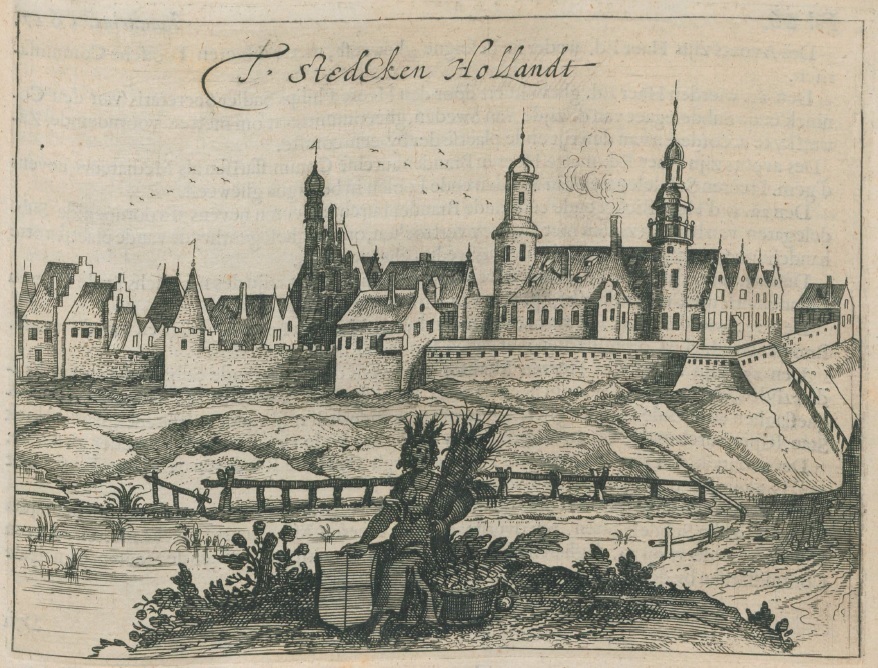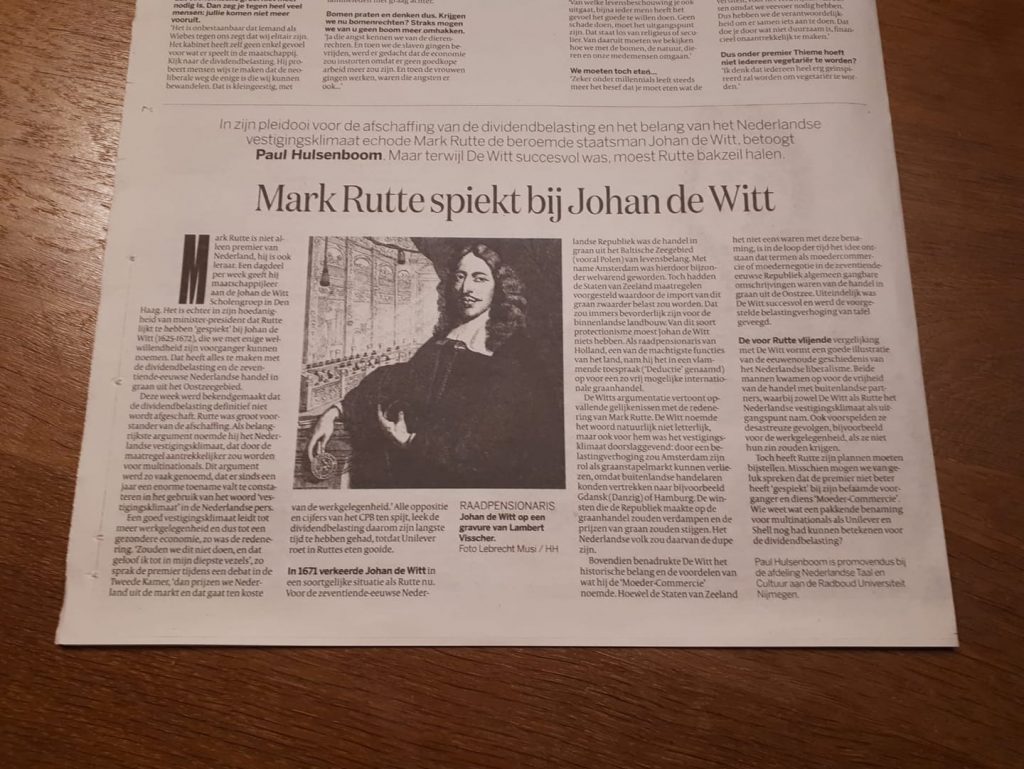
Historical Droste effect: I found out that the Dutch Minister of Foreign Affairs Wopke Hoekstra referenced a paper of mine – on poetry as a diplomatic tool in 17th-century Dutch-Polish relations – in a speech he gave at a modern Dutch-Polish diplomatic event, last April:
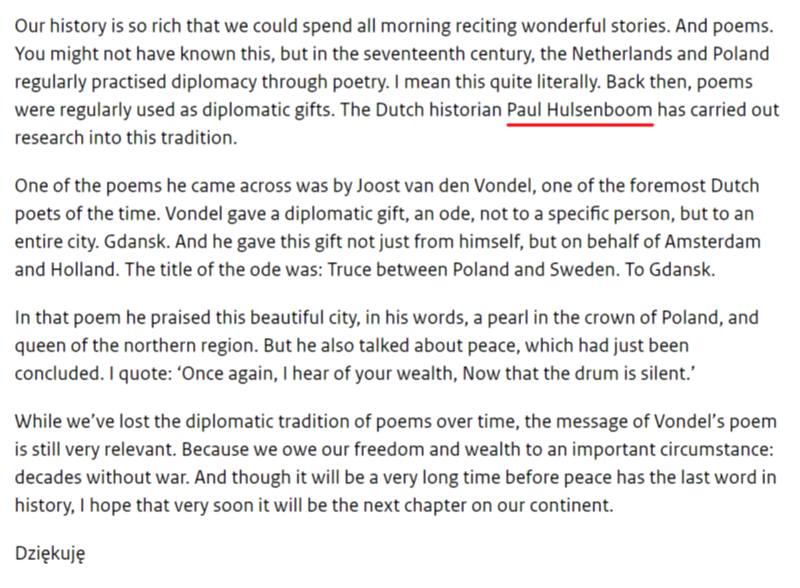 Hoekstra placed himself in that same 17th-century tradition by quoting the famed Dutch poet Joost van den Vondel, who praised Gdańsk in 1635 to boost the grain trade. Almost 400 years later, Vondel’s poem thus once again served to bolster Dutch-Polish relations. Also, Vondel’s definition of Gdańsk as “queen of the northern region” is a translation of a Latin verse about Gdańsk by the Polish poet Sarbiewski/Sarbievius, published in 1634. In other words: Hoekstra quoted Vondel quoting Sarbiewski. This is some serious intertextuality! Moreover, my own paper on early modern diplomacy has become part of the modern diplomatic process. And so have I: the fact that I’m a “Dutch historian” is especially relevant in this context (Hoekstra missed the opportunity to say that I’m also Polish, however).
Hoekstra placed himself in that same 17th-century tradition by quoting the famed Dutch poet Joost van den Vondel, who praised Gdańsk in 1635 to boost the grain trade. Almost 400 years later, Vondel’s poem thus once again served to bolster Dutch-Polish relations. Also, Vondel’s definition of Gdańsk as “queen of the northern region” is a translation of a Latin verse about Gdańsk by the Polish poet Sarbiewski/Sarbievius, published in 1634. In other words: Hoekstra quoted Vondel quoting Sarbiewski. This is some serious intertextuality! Moreover, my own paper on early modern diplomacy has become part of the modern diplomatic process. And so have I: the fact that I’m a “Dutch historian” is especially relevant in this context (Hoekstra missed the opportunity to say that I’m also Polish, however).
In conclusion, the speech shows how the study of history and literature can be used to pursue political and economic interests via international diplomacy. “Valorisation” of humanities research doesn’t get much more explicit than this.
My paper was published here, in Legatio: The Journal for Renaissance and Early Modern Diplomatic Studies in 2019.
Hoekstra’s speech can be found here.

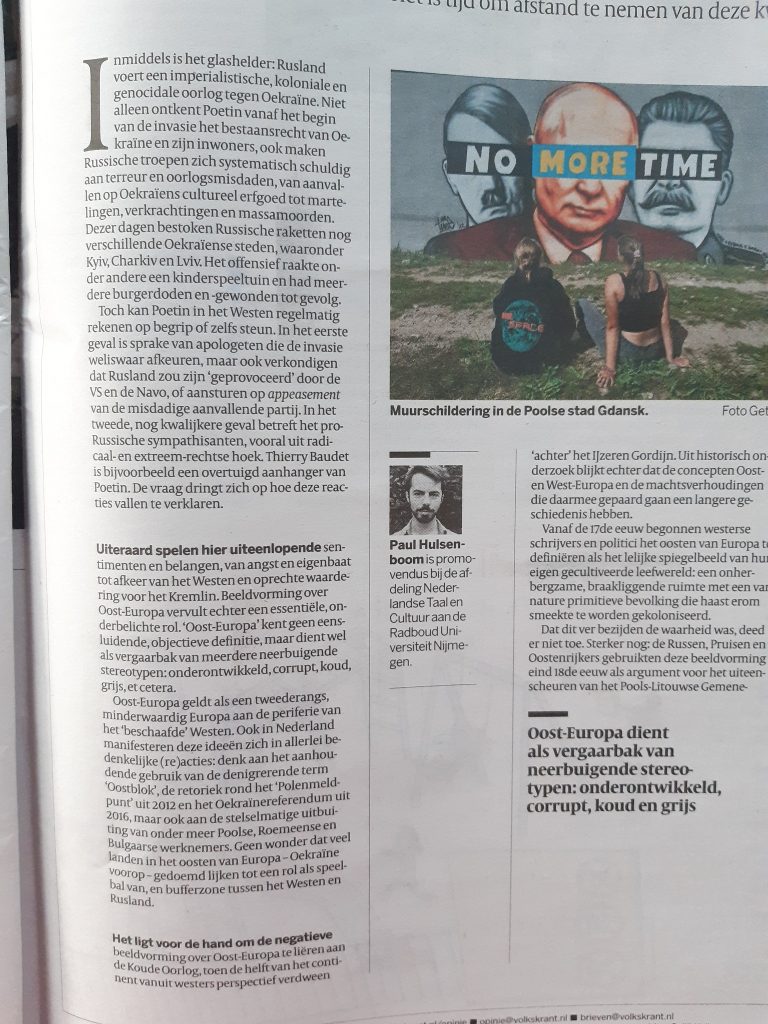
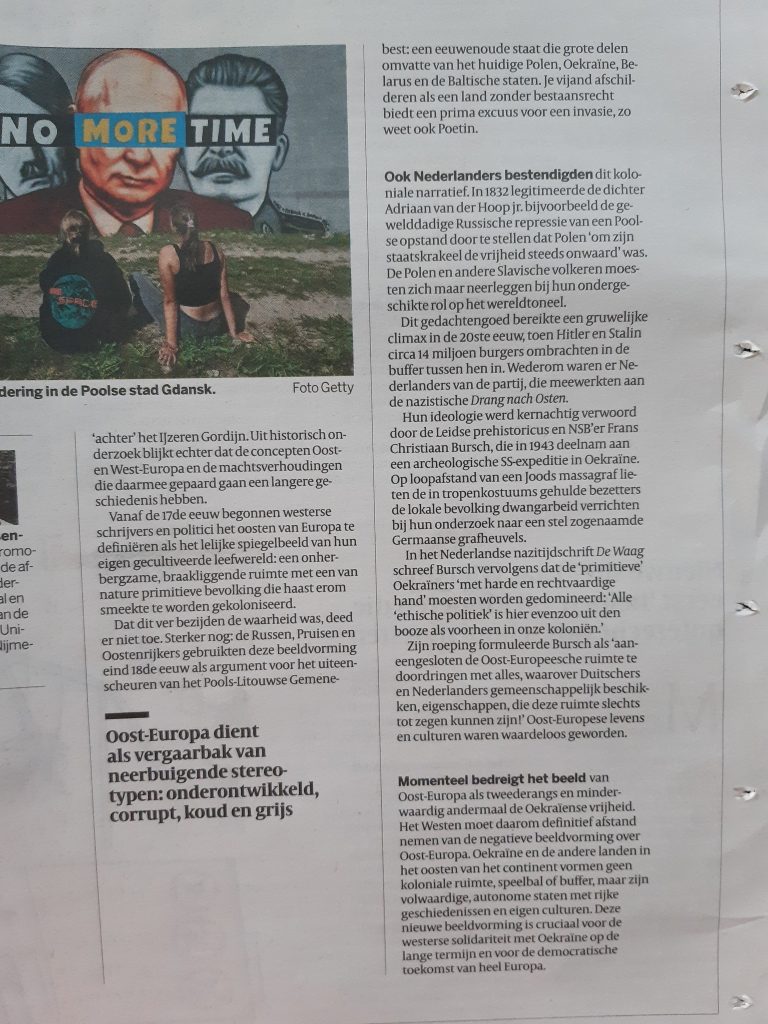
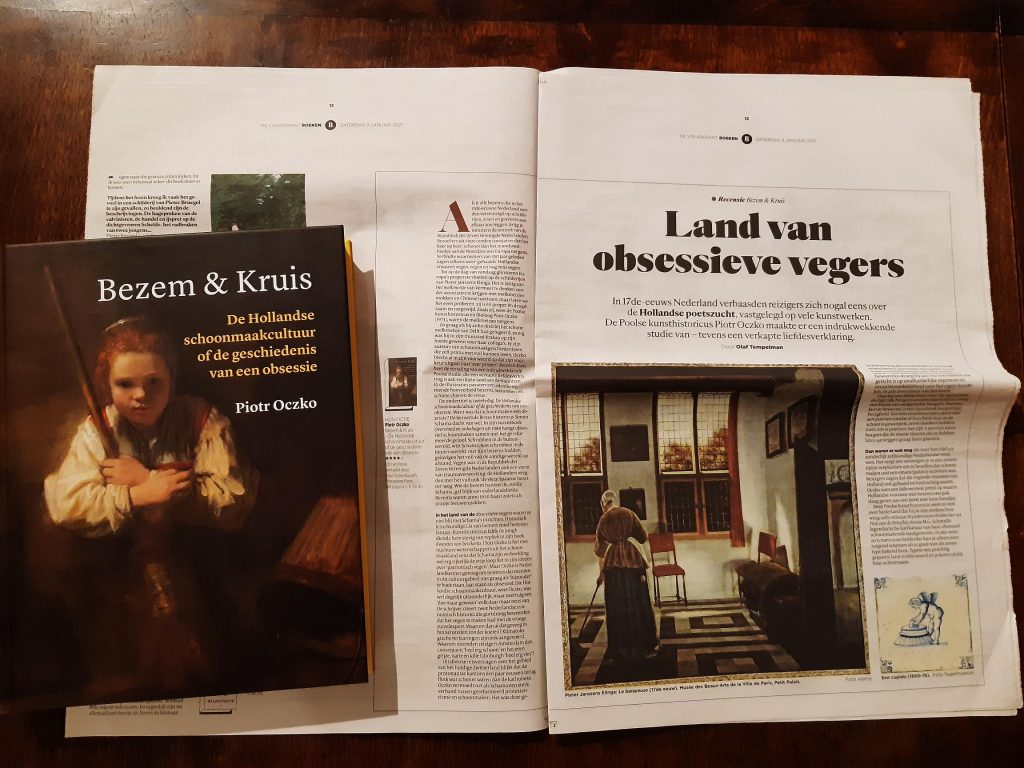
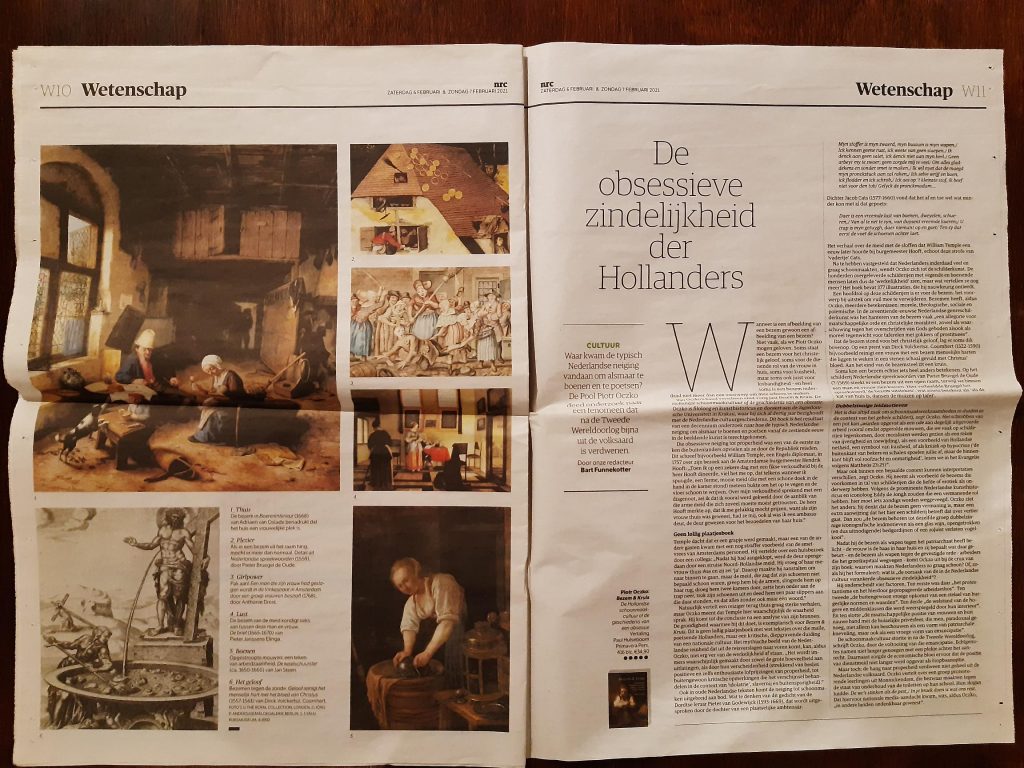

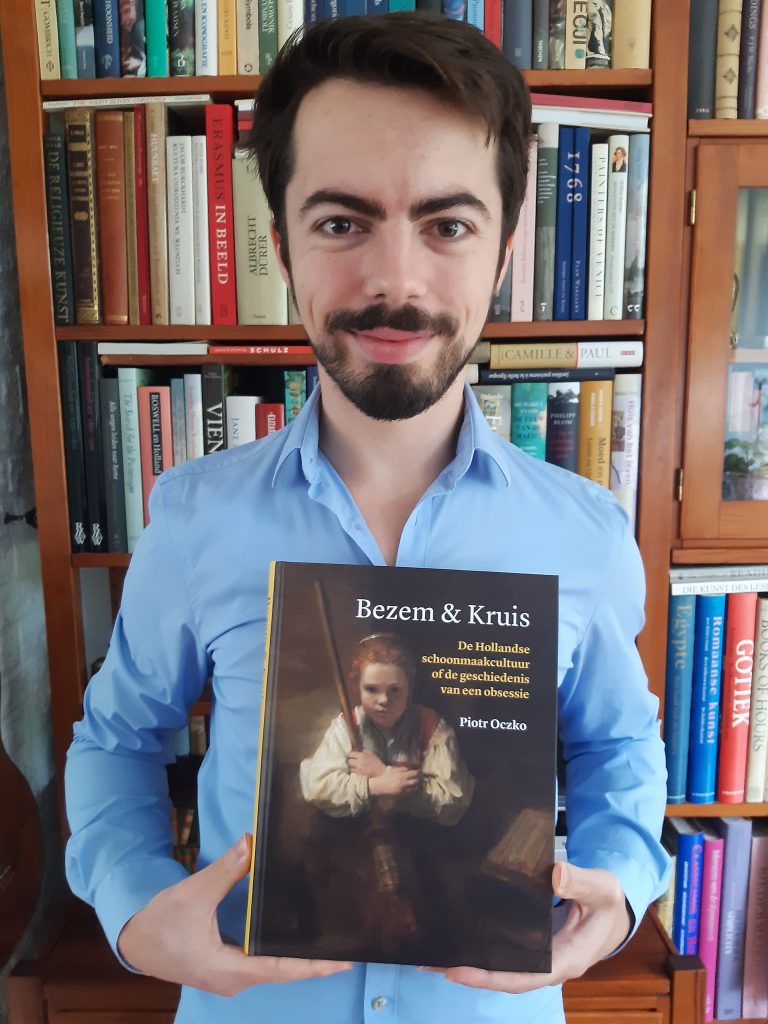 Deze maand verscheen bij de Primavera Pers in Leiden het boek Bezem & Kruis: De Hollandse schoonmaakcultuur of de geschiedenis van een obsessie, mijn vertaling van Miotła i krzyż: Kultura sprzątania w dawnej Holandii, albo historia pewnej obsesji. Het boek is geschreven door de Poolse letterkundige en kunsthistoricus Piotr Oczko, die is verbonden aan de Uniwersytet Jagielloński in Krakau.
Deze maand verscheen bij de Primavera Pers in Leiden het boek Bezem & Kruis: De Hollandse schoonmaakcultuur of de geschiedenis van een obsessie, mijn vertaling van Miotła i krzyż: Kultura sprzątania w dawnej Holandii, albo historia pewnej obsesji. Het boek is geschreven door de Poolse letterkundige en kunsthistoricus Piotr Oczko, die is verbonden aan de Uniwersytet Jagielloński in Krakau.